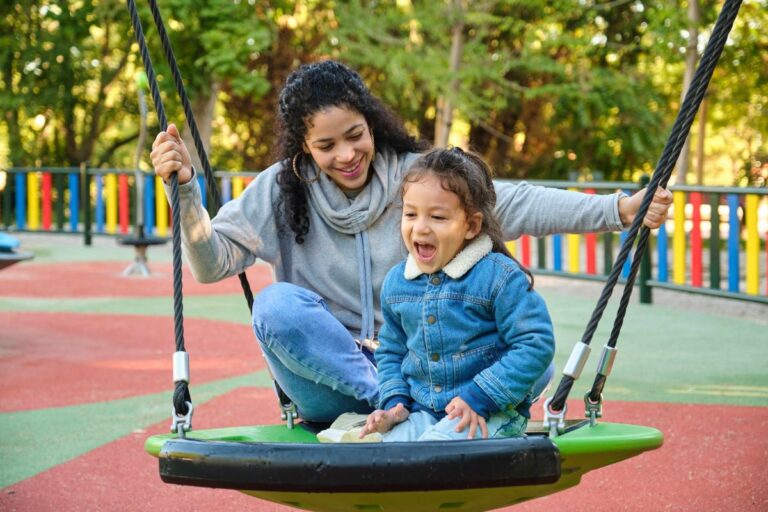Raising Kids Right: A Guide to Positive Environments
Raising children in a positive environment is essential for their overall well-being and future success. Studies have shown that children who grow up in nurturing and supportive environments are more likely to develop strong social skills, emotional resilience, and academic success. In this comprehensive guide, we’ll explore key strategies supported by research to foster positivity in parenting.
Establish Clear Communication

Research indicates that open communication between parents and children is linked to better emotional regulation and fewer behavioral problems in children. According to a study published in the Journal of Child Psychology and Psychiatry, children who feel listened to and understood by their parents are more likely to develop secure attachments and positive self-esteem. Regular family meetings and one-on-one conversations provide opportunities for children to express themselves and for parents to offer guidance and support.
Practice Positive Discipline

Positive discipline techniques, such as redirection, positive reinforcement, and logical consequences, have been shown to be more effective than punitive measures in promoting desirable behavior in children. According to research published in the Journal of Applied Developmental Psychology, children who experience positive discipline are more likely to exhibit self-control and empathy towards others. By focusing on solutions rather than punishment, parents can teach valuable life skills and strengthen the parent-child bond.
Cultivate a Growth Mindset

Studies have demonstrated the importance of fostering a growth mindset in children for academic success and resilience. Research published in the journal Child Development found that children who believe in the malleability of their abilities are more likely to embrace challenges and persist in the face of setbacks. Parents can promote a growth mindset by praising effort over ability, providing constructive feedback, and encouraging a love of learning.
Lead by Example

Parental modeling plays a crucial role in shaping children’s behavior and attitudes. According to a study published in the Journal of Family Psychology, children who observe positive behaviors in their parents, such as kindness, honesty, and resilience, are more likely to emulate those behaviors themselves. By demonstrating healthy coping strategies and problem-solving skills, parents can teach valuable life lessons and inspire their children to become confident and compassionate individuals.
Create a Supportive Environment

Research has shown that a supportive family environment is associated with better mental health outcomes and higher self-esteem in children. A longitudinal study published in the Journal of Marriage and Family found that family cohesion and warmth predicted greater psychological well-being in adolescents. Parents can foster a supportive environment by offering praise and encouragement, providing opportunities for autonomy and independence, and demonstrating unconditional love and acceptance.
Encourage Positive Relationships

Peer relationships play a significant role in children’s social and emotional development. Research published in the Journal of Abnormal Child Psychology suggests that positive peer interactions can protect against the development of anxiety and depression in children. Parents can support healthy friendships by facilitating social activities, teaching conflict resolution skills, and modeling empathy and cooperation in their own relationships.
Focus on Emotional Intelligence

Emotional intelligence, or the ability to recognize and manage one’s own emotions and those of others, is a critical skill for success in life. According to research published in the journal Development and Psychopathology, children with high emotional intelligence are better equipped to navigate social situations and build meaningful relationships. Parents can promote emotional intelligence by validating their children’s feelings, teaching coping strategies, and providing opportunities for emotional expression and reflection.
Foster a Culture of Gratitude

Gratitude has been linked to numerous psychological benefits, including increased happiness, resilience, and overall well-being. Research published in the Journal of Positive Psychology suggests that cultivating a sense of gratitude in children can lead to greater satisfaction with life and stronger social connections. Parents can encourage gratitude by modeling thankfulness, incorporating gratitude practices into daily routines, and highlighting the positive aspects of life.
The Foundation for a Bright and Promising Future

By implementing evidence-based strategies and fostering a culture of positivity at home, parents can create an environment where children feel loved, supported, and empowered to reach their full potential. Through clear communication, positive discipline, and modeling of healthy behaviors, parents can instill valuable life skills and cultivate resilience in their children. With dedication and consistency, parents can lay the foundation for a bright and promising future for their children.
The post Raising Kids Right: A Guide to Positive Environments first appeared on Peachy Fours.
Featured Image Credit: Shutterstock / Inside Creative House.
For transparency, this content was partly developed with AI assistance and carefully curated by an experienced editor to be informative and ensure accuracy.







